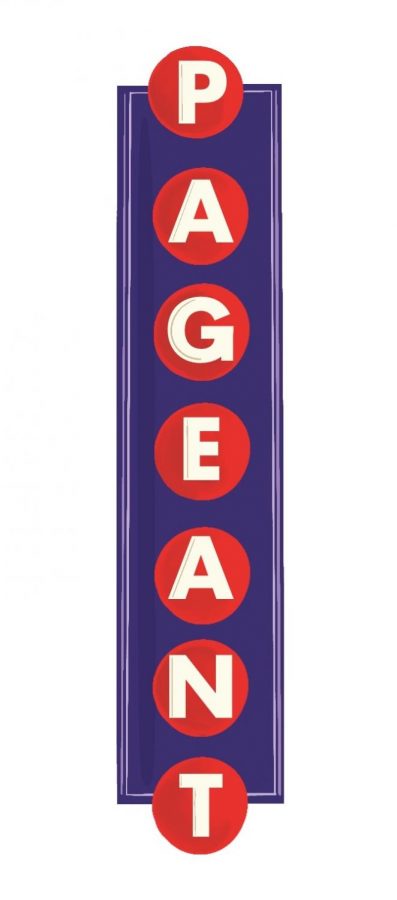The Pageant: One Year Later
While everyone has suffered from the COVID-19 pandemic, few industries have been hit quite as hard as the entertainment industry. Last May, I sat down with Patrick Hagin, managing partner of The Pageant and Delmar Hall, to discuss the impact of the shutdowns on the concert industry in St. Louis and at large. Now, almost one year later, the pandemic is in a vastly different stage than in May, and Hagin’s comments, as well as the state of the Pageant and Delmar Hall, have also changed.
Fortunately, the tone of our most recent interview is far more optimistic than the first one. “We don’t have any plans on reopening in Delmar Hall until some time in the summer,” Hagin said, “but, at the Pageant, once we got into the late summer [of 2020] we got permission from the city of St. Louis to host some shows at a greatly reduced capacity.” While national touring is still currently prohibited, starting in mid-October 2020, the Pageant held weekend sets from local acts. While their normal capacity fits 2000 people, only 326 tickets were available for each of these shows, fitting pods of four and two people, each spread six feet apart. “That series was as successful as it could be. It’s not really a profit bank or even a breakeven project for us. However, a lot of the local artists really appreciated the chance to work and make some money, and it also kept our name out there, so from that standpoint it was successful.” Those shows are going to continue starting this April. “We’ll do that for a couple of months and just hope that if things go along and the restrictions start to ease up so we can slowly open up to larger crowds.”
But the time from now until then is hard to predict. “A lot of it depends on the rate of vaccination, a lot of it depends on the severity of any particular variant outbreak, but we’re keeping our fingers crossed and hoping that by late summer we’re back to normal.” Of course, he uses the term ‘normal’ loosely. “Normal could be a full house with everyone wearing masks. Who knows?”
In May, Hagin said that artists had financial incentives to postpone their shows rather than cancel them. However, the pandemic has lasted far longer than most expected at the time, forcing many to reconsider. “There are a couple [shows] that are still on the backburner, but by the time we got into the middle of the summer [last year], most started just cancelling the shows outright. At that time in the summer there were rumors about this lasting until 2022, so I think a lot of people were just throwing their hands up.”
For the acts that are still holding onto those show spots, many are pushing off into 2022. Others are having a hard time trying to find a spot among the countless acts who plan on touring at the same time once these restrictions are lifted. “If you look at our calendar from roughly September on, every day has five or six holds on it.”
While there will certainly be a greater quantity of holds on a given spot, the industry standards on choosing who gets what date will remain the same. “You have to be fair about it,” Hagin said, referring to the process of maintaining hold statuses, where artists have their hold number based on what order they ask for it. “Normally, the first hold is there because an artist called you about that date first, but obviously it has to be appropriate. It has to be an artist who you and they believe is appropriate at your sized venue.” Beyond this, it’s a matter of who has the date first. “You do run into situations where you will have an artist who has the third or fourth hold who is potentially a better draw than the artist you have as a first hold, but you won’t last long in this business if you start cherry picking that way because then you will offend and irritate agents and management who feel like you’re not playing by the industry norms.”
An even greater challenge has been honoring fans who’ve spent money on tickets for shows that were ultimately canceled. In our last conversation, Hagin said that Delmar and the Pageant were offering 30 day refund windows after these shows were rescheduled. Unfortunately, venues haven’t been able to hold onto the revenues made by these ticket sales. “There’s been a whole lot of refunds, and that’s been a real challenge across the industry.”
Other challenges have been centered around how venues should screen attendees for symptoms upon entering a show. While Hagin is skeptical about the possibilities of having concert-goers prove their vaccination status, and predicts temperature checks will go away shortly, he does believe the mask wearing and basic questioning will persist into the near future. The main changes the Pageant will see are in their facilities. “We will most likely be installing disinfectant bipolar ionization units in our HVAC ductwork to help cleanse the indoor air.”
Still, how venues can and will combat these issues is about as uncertain as the pandemic itself.
“It’s still a little bit of the wild west out there as far as figuring out what works and what doesn’t. While the ‘hygiene theater’ is a buzzword, you don’t wanna waste money on stuff that doesn’t really do anything so you’ve gotta weed through all that to find out what you think is actually effective and what isn’t.”
Additionally, it’s hard to rely on a consistently effective routine. “We can say ‘masks are required except when actively eating or drinking.’ How do you interpret ‘actively?’ Plus, the more people drink, even if they’re completely well intentioned, the more they let their guard down. That’s why the vaccines are so important.”
Once these vaccines are fully rolled out, the shows themselves may not look the same artistically, either. In May, Hagin said that we’ll likely be seeing “less bells and whistles with the tours” once concerts are back on, with the artists stripping back to maximize profit and keep tickets at an attractive price. While he believes that to be true, he says it also depends on the genre, using country music as an example. “At our level, the average country show is more of a standard, simpler production than your average rock show. There’s not a lot of video screens, there’s not a lot of exploding pyrotechnics or anything like that with the mid-level country artists. Once you get up to the arenas it’s all on the table at that point.”
Surprisingly, government legislation has been one of the biggest contributors to venues across the country staying open long enough to even see those changes. “The Save Our Stages legislation was a monumental piece of legislation for our industry. The money still hasn’t been dispersed, we’re still waiting on that, but the legislation is there, the money is there, and the Small Business Administration (SBA) is just trying to determine the best way to deliver it.”
Two of the biggest pushers of this legislation were Democratic Minnesota Senator Amy Klobochar and Republican Texas Senator John Cornyn, making it a bipartisan effort that got signed into law in December. Part of this legislation was the Shuttered Venue Operators Grant (SVOG), a program which includes over $16 billion in grants to shuttered venues, to be administered by the SBA’s Office of Disaster Assistance. “Once those dollars start to flow it’s gonna rescue a lot of venues, and really that’s why I’m optimistic.”
Hagin is thankful for the government’s hand in this time. “I think that the government has done a pretty good job of taking care of people financially, I wouldn’t say great, but it’s been adequate. They’ve taken care of our employees with enhanced unemployment and by extending the unemployment multiple times to where people weren’t losing their apartment or starving, but I’m in no way glossing over the fact that a lot of people have gotten really hurt.”
Last May, Hagin asked audiences for “a little bit of tolerance” and an “understanding of the situation” as well as for us to patronize our favorite restaurants, bars and venues once they open up, stating that “the ones that are left are gonna need as much love as they can get.” While that sentiment was haunting in mid 2020, I can happily end this article with a more optimistic message.
“I think we all knew that a lot of places weren’t gonna make it, but I think now that if they got this far and they’re still here, then I think they’re in pretty good shape and there are grant programs that are going to make a lot of difference. It’s been rough, but if you’ve made it this far, you’re probably gonna get through this.”
Your donation will support the student journalists of Saint Louis University.






